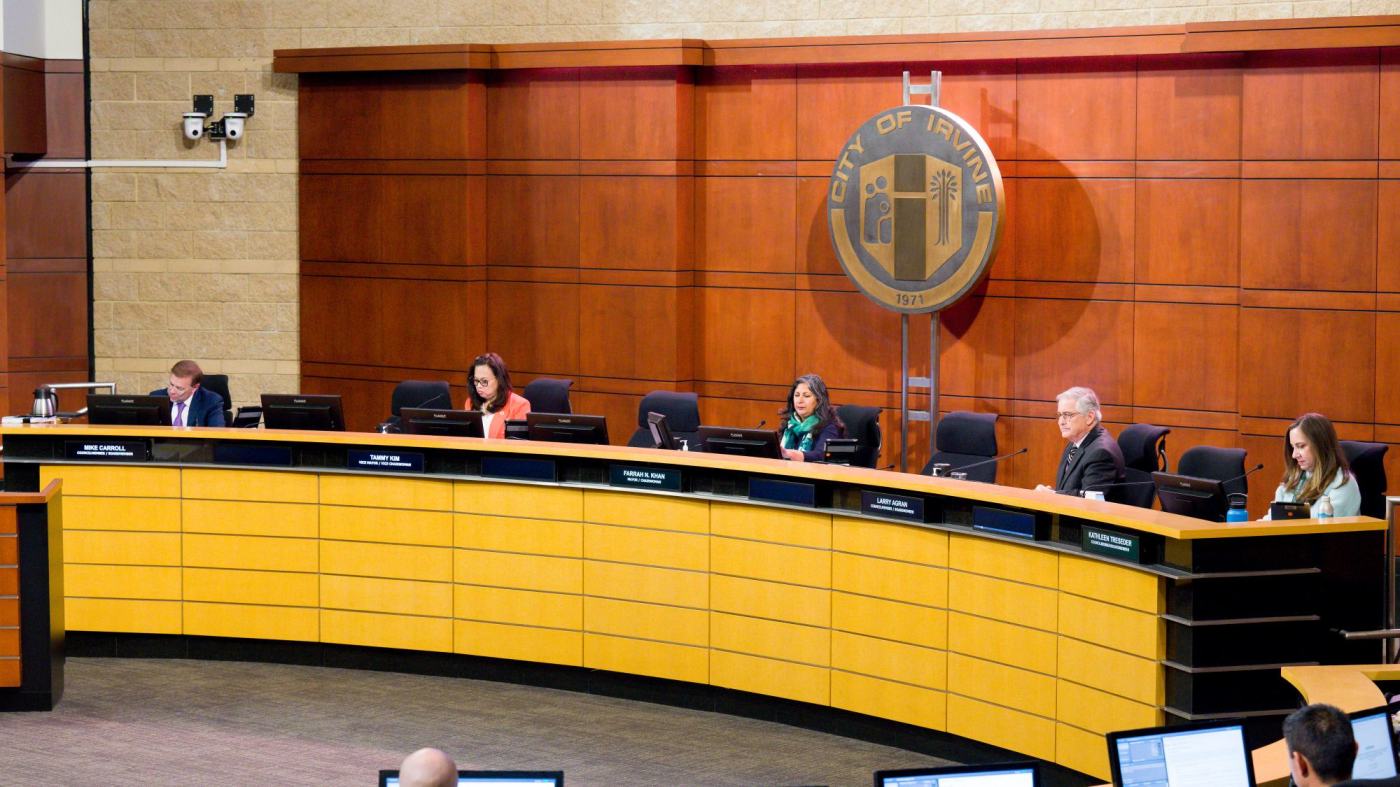Irvine leaders are talking about changes to how the city’s lobbyists are governed, which officials say has largely stayed the same for nearly two decades.
Following discoveries of an investigation into allegations of corruption in Anaheim, where efforts to expand lobbying laws are also underway, the Irvine City Council in September directed city staff to look into ways to strengthen Irvine’s own lobbying rules.
City Attorney Jeffrey Melching offered a series of potential proposals last month, including lowering the compensation threshold at which an individual is required to register as a lobbyist.
The current city ordinance – it was adopted in 2006 and according to Melching has only gone through minor modifications since – requires individuals to register as a lobbyist if they receive compensation of $10,000 or more in a calendar quarter.
In nearby Anaheim, the compensation threshold is $500 a month, and in Los Angeles, it’s $1,000 for a consecutive three-month period. San Diego does not have a threshold at which an individual is required to register as a lobbyist; as long as an individual is being compensated, they must register.
Councilmember Kathleen Treseder, who brought up the request to revisit Irvine’s lobbying ordinance, said she supports lowering the compensation threshold to either $1,000 or $500, as well as amending the calendar quarter system to three consecutive, or rolling, months.
“Irvine has a much higher compensation threshold than neighboring cities,” Melching said. “That probably explains in some measure why it has the smallest number of registered lobbyists among those cities.”
Irvine has seven lobbyists registered with City Hall. By comparison, Anaheim has 18, and Oakland and Sacramento each have 80 and 225, respectively, Melching said.
He also proposed tweaking how fees for violating the ordinance are enforced. Under current laws, the penalty is a civil action for up to $1,000 per violation.
The city could have the fee “imposed as an administrative fine, as a violation of the municipal code,” Melching said, to avoid the time and expense of a civil lawsuit. The violation could also be publicly reported on the city website to let “the world know that this has happened” and discourage the behavior, Melching said.
Violations could also be fined on a per-contract and per-day basis, in which an individual would be fined each day that a violation remains pending.
Councilmember Mike Carroll took issue with who is deciding how the law is currently enforced. The way it works now, Melching said, is if somebody believes that a violation of a lobbying ordinance has occurred, they are allowed to make a complaint to the city clerk who reviews the complaint and escalates it to the city manager, who then decides whether to open up an investigation.
“I’m not exactly sure why the enforcement power is placed in the hands of a non-legal staff member,” Carroll said. “It seems very strange to me that determinations are placed in a non-legal function.”
He recommended moving the decision-making of whether an investigation should open to the city attorney.
Carroll wasn’t the only one on the dais who voiced concerns. Councilmember Larry Agran said he could see issues with how some of the proposed reforms would “really work in the real world.”
Related Articles
Gracey Van Der Mark named new Huntington Beach mayor
$3 billion grant OK’d for California-to-Vegas high-speed rail
Scores of mentally ill people referred for CARE services in program’s first 2 months
Lake Forest to consider adding more housing to Meadows community
Plans for a temporary amphitheater at Great Park won’t be ready until next year
“When somebody who’s a high official in a land development company here bumps into one of us at a restaurant and is asked to join us for dessert or a drink, and the conversation is about baseball and the playoffs, and then it drifts over to a pending project,” Agran said. “Is that kind of thing reportable? And in what detail?”
While Agran stressed that his concerns are not “an expression of opposition,” he said expectations should be realistic.
“This is extremely difficult to regulate, even when there’s good faith,” Agran said. “When there is not good faith, no amount of regulation is going to do the trick.”
Reforms also shouldn’t “create a mechanism” where “people are afraid to come forward for fear they need to register as a lobbyist,” he said.
The city attorney is now tasked with drafting an ordinance that covers the comments and suggestions made by the council and bringing it back at a later, unspecified date.





